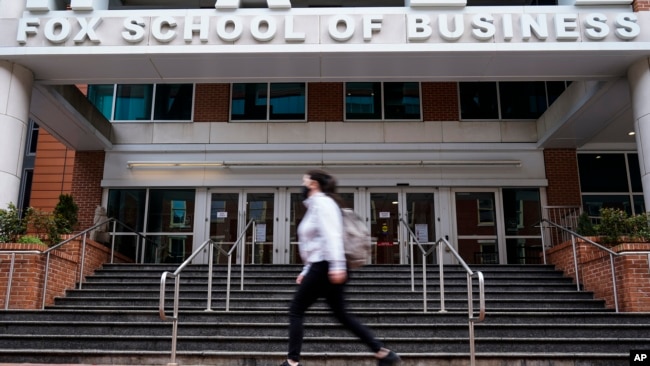Will Scandal Change How People View College Rankings?

A former leader of Temple University’s business school was found guilty in late 2021 for sending false data to lift the school’s rankings.
The false information included the number of students who sent test scores, their school grades, and work experience. Based on the information, U.S. News gave the university’s computer-based business degree program, known as an online MBA, the top ranking for four years ending in 2018. The publication also moved up Temple’s part-time MBA program to seventh place in 2017.
U.S. Government lawyers said Porat boasted about these rankings to bring in more students and donations to the school. The number of students, they said, grew greatly in a few short years and rising rankings brought in millions of dollars.
On November 29, Porat was found guilty of charges related to sending false information “to defraud the rankings system, potential students, and donors.”
Lower ranking
After news about the false information came out, the number of students in Temple’s online MBA program dropped to just over 100. NBC News reported that the program had more than 330 students in 2017.
U.S. News and World Report also took Temple’s online business program out of its rankings for a short time. It is now ranked 105th.
Ibrahim Fetahi was a student in Temple’s online MBA program. He said he chose the program because of its high ranking. He said he felt as if he paid for a costly meal, but instead got something more like fast food. Fetahi added, “I will always have a scar on my resume.”
During the trial, The Philadelphia Inquirer reported that one of Porat’s lawyers argued Temple University itself was the real guilty party in the case. He said the school was occupied with rankings and even trained their employees on how to get higher rankings.
History of false rankings
In its coverage of the Temple case, the publication Inside Higher Ed listed several well-known universities that have admitted to providing false information. The schools are Villanova University’s law school, Tulane University’s business school, Claremont McKenna College, and Bucknell University.
The Temple case is different, however. Porat is believed to be the first university official who has been charged and found guilty of providing false information in college rankings.
What to make of college rankings?
There are two important questions about rankings that come from the Temple case: Can students trust rankings? And how much weight should students give rankings when choosing a college?
Francie Diep writes about college rankings for The Chronicle of Higher Education. She said students should use rankings as only part of their college decision.
“There’s also just a lot of things that are important to students that the U.S. News rankings don’t measure. So, if the only thing you’re looking at is the rankings, then you may not be, sort of, making the best choice for you depending on what things you want from college.”
Ahead of rankings, Diep says students may want to consider the cost of attendance, a sense of belonging at the school, and how much money they could earn after school. “That’s one of the most important things for most families and that’s not really captured in the rankings,” she said.
Katie Burns is a college adviser for IvyWise. She works with both American and international students to help them pick the best college.
Words in This Story
ranking – n. the position of something on a list
boast – v. to express too much pride in yourself or something you have
defraud – v. to trick or cheat someone or something in order to get money
potential – adj. capable of becoming real
party – n. a person who is involved in a legal case or contract
scar – n. a feeling of pain or sadness caused by a bad experience; a mark left on something where it has been damaged
resume – n. a document describing your education and work history
inflated – adj. increased to a level that is not proper or too large
accurate – adj. free from mistakes or errors
benchmark – n. something that can be used to judge the quality or level of other, similar things
Comprehension Quiz:
1. What is the article all about?
2. How important do you think college rankings should be to students?
https://learningenglish.voanews.com/a/will-scandal-change-how-people-view-college-rankings-/6443074.html